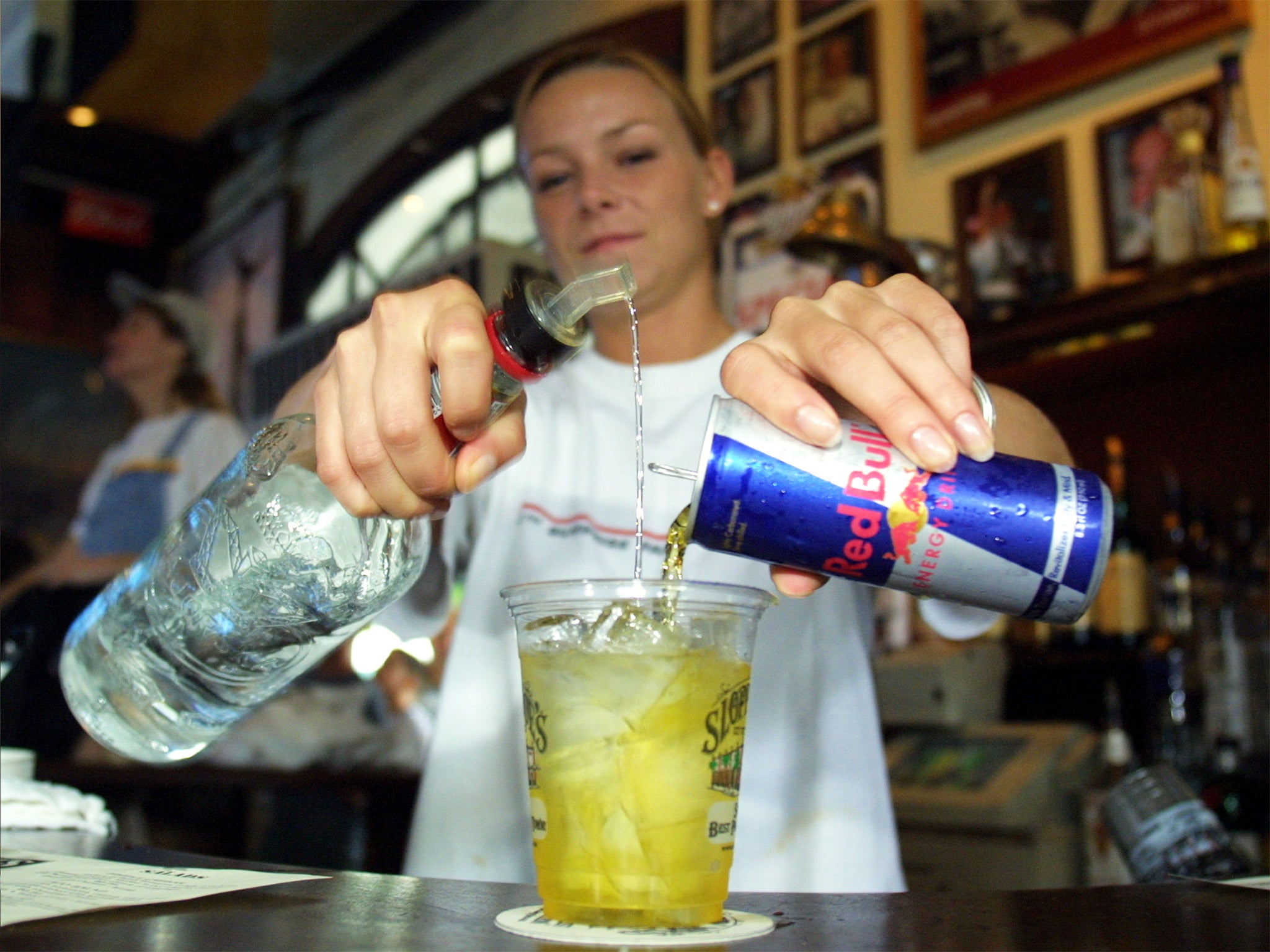Poorly regulated energy drinks could be harming children, WHO warns
Children can be more susceptible to the potentially harmful effects of caffeine intoxication

Your support helps us to tell the story
From reproductive rights to climate change to Big Tech, The Independent is on the ground when the story is developing. Whether it's investigating the financials of Elon Musk's pro-Trump PAC or producing our latest documentary, 'The A Word', which shines a light on the American women fighting for reproductive rights, we know how important it is to parse out the facts from the messaging.
At such a critical moment in US history, we need reporters on the ground. Your donation allows us to keep sending journalists to speak to both sides of the story.
The Independent is trusted by Americans across the entire political spectrum. And unlike many other quality news outlets, we choose not to lock Americans out of our reporting and analysis with paywalls. We believe quality journalism should be available to everyone, paid for by those who can afford it.
Your support makes all the difference.High-caffeine energy drinks are being widely consumed by children and young people and could be storing up “a significant public health problem” for the future, experts from the World Health Organisation have warned.
Researchers found that many such drinks were being “aggressively” marketed to children, who can be more susceptible to the potentially harmful effects of caffeine intoxication.
Unlike tobacco and alcohol, energy drinks such as Red Bull and Monster are rarely restricted for sale to children.
Health experts have warned before about possible dangers of the drinks, which often contain as much caffeine as a cup of coffee, but are usually consumed much more quickly – raising the risk of caffeine intoxication.
In a review of medical evidence, Dr João Breda of the WHO’s Regional Office for Europe, and other researchers, said that “concerns in the scientific community and among the public regarding the potential adverse health effects” of energy drinks were “broadly valid”.
Caffeine intoxication can lead to heart palpitations, high blood pressure, nausea and vomiting, convulsions, psychosis and in rare cases, death.
A third of adults, one in five children and more two thirds of adolescents drink energy drinks in Europe. While they account for only eight per cent of adults’ caffeine intake, 43 per cent of the caffeine consumed by children comes from energy drinks, according to a recent survey by the European Food Safety Authority (EFSA).
The survey also found that 70 per cent of 18 to 29-year-olds who drink energy drinks mix them with alcohol.
Energy drinks have been linked to a number of deaths in recent years. High doses of caffeine can in some cases disturb the rhythm of the heart, which can be extremely dangerous for people with an underlying heart condition.
Despite health concerns, the energy drinks market is growing in Britain. We now consume 500m litres of energy drink a year, according to the market research company Canadean, compared to 375m litres just four years ago.
However, the WHO researchers said that greater restrictions and regulations should be introduced to minimize harm to young people, including caps on the amount of caffeine allowed in a single serving and “regulation to enforce restriction of labelling and sales of energy drinks to children and adolescents”.
“As energy drink sales are rarely regulated by age, unlike alcohol and tobacco, and there is a proven potential negative effect on children, there is the potential for a significant public health problem in the future,” they write.
They also said that healthcare professionals should be aware of the risks and symptoms of high consumption. Their paper is published in the journal Frontiers in Public Health.
The British Soft Drinks Association, which represents UK producers of soft drinks, fruit juices, bottled waters and energy drinks maintains that caffeinated energy drinks for sale in the UK are safe, and have been cleared by regulators.
The group’s director general Gavin Partington said that the WHO’s study had looked a number of scientific papers “which the authors judged to be relevant while not taking into account the conclusions of other scientific articles".
“Several of the policy recommendations it makes are already well established through the British Soft Drinks Association's voluntary code and EU regulation. Energy Drinks typically contain 80mg of caffeine per 250ml which is the same amount of caffeine as in a cup of coffee,” he said.
Join our commenting forum
Join thought-provoking conversations, follow other Independent readers and see their replies
Comments